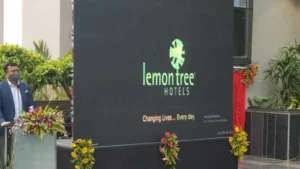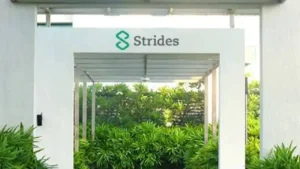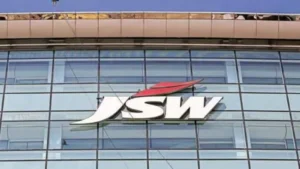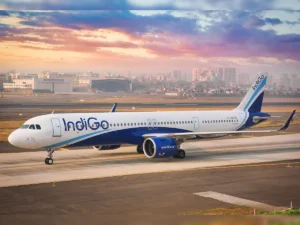Fees for using a service – whether a convenience, platform or order fulfillment fee – are now becoming the norm as companies claim the service helps them pay their bills. While fees are a relatively new concept for businesses, e-commerce companies and service providers like BookMyShow were among the first to introduce additional fees per booking. .
Ajio, Reliance Retail’s online fashion portal, is the latest to join a list of companies that impose such fees, making ordering online more expensive.
Companies that go this route have tried to hide it in various ways. Moneycontrol previously reported that Nykaa Fashion calls the additional Rs 29 fee a “convenience fee”. Ajio has a “implementation fee” of Rs 19. Myntra, who call it a “convenience fee”, initially charged Rs 10 but has now increased to Rs 15.
A spokesperson for Ajio did not respond to Moneycontrol’s email request in detail.
These fees are typically 0.5-1% of the platform’s average order value (AOV). For example, Nykaa Fashion, which has an AOV of Rs 4,413 for the June quarter, charges Rs 29. Myntra, which has an AOV of around Rs 1,400, charges Rs 15. While the additional fees vary from company to company, the goal is the same: to make every order more profitable and improve results, according to internet industry analysts.
“Additional fees apply because e-commerce as a industry is growing and people appreciate the ease of shopping from home. If these fees were introduced 4 years ago, e-commerce businesses might not have developed as they are today. Rajat Tuli, Partner, Consumer & Retail, at Kearney, a management consulting firm, said: “However, the trend of online shopping is now on the rise and customers are willing to pay extra due to this convenience and services provided by these companies”. . .
He added that companies have the option of increasing the “convenience fee” to around Rs 40-45, but anything above Rs 50 would make ordering too expensive and cause impediment.
“If you ask me to do a survey, even the richest person would hesitate to spend an extra Rs 10-20, but the percentage of buyers abandoning an order just for an extra Rs 10-20 would be very small,” Tuli said.
Convenience vs Great Price
However, convincing people to pay for a service they are used to for free is not easy.
“Customers don’t tend to pay extra for a product or service because of everything but the product,” says Satish Meena, an independent e-commerce analyst who has worked with Forrester, a research firm. products are free to them.”
Meena divides online shoppers into two categories: those who buy online for convenience and accept extra fees, and those who buy online for discounts. Any additional costs will deter them from buying online as the local store offers a better price. “That’s why a company like Meesho would think twice before charging convenience,” says Meena.
Meesho has positioned itself as a low-cost shopping destination, mainly focusing on shoppers from non-urban cities. For context, the SoftBank-backed startup has an AOV of Rs 400-450, just 10% of that of high-end segment company Nykaa Fashion.
In fact, Vidit Aatrey, Co-Founder and CEO of Meesho, previously told Moneycontrol that charging additional fees will affect the consumer experience. “I don’t think we’re going to charge customers a convenience fee for returns or do anything else to lower our return rate. I don’t think it’s the right thing to do as a company,” he said.
soften the blow
Profitability is an obstacle that all e-commerce businesses must bear. Analysts say return rates are significantly higher in the fashion industry – around 20-30% – due to sizing issues, mismatches between the image and the product itself, and more.
While some players have taken steps to discourage returns, Meena and Tuli argue that an additional fee is good for businesses because it lessens the shock with each return. Companies usually spend Rs 40-70 per order on logistics. The additional costs absorb part of this amount.
In most cases, the newly applied additional fees are non-refundable, eliminating the need for buyers to order multiple items, try them on, and ultimately return all products.
“Convenience fees are non-refundable,” said a pop-up on the Ajio app.
A convenience fee per order also incentivizes customers to consolidate their orders. “A customer who wanted to buy two shirts previously placed two custom orders. But now they’re going to place an order just to save on convenience fees,” said Kearney’s Tuli.
It is also better for business as it increases AOV.
food delivery
E-commerce companies aren’t the only ones looking to improve their bottom line.
Swiggy started charging a ‘platform fee’ of Rs 2 for all food orders in April and is now increasing to Rs 5. Competitor Zomato followed suit with a platform fee of Rs 2 in August and also experimented with higher amounts in some cases. . This was originally a pilot project but has now been rolled out to all users.
Although the fee they charge may seem small, it is still around 0.5-1.0% AOV, as is the case with fashion e-commerce businesses.
Food delivery players have an AOV of Rs 400-450 and a platform fee is charged for all orders, although some customers may have signed up for their paid loyalty program. According to a note from JP Morgan, Zomato delivered about 17.6 million orders in the June quarter, or about 20,000 orders per day. Based on the calculation on the back of the envelope, Zomato’s decision to charge the platform will result in an additional revenue of nearly Rs 40 lakh per day.





